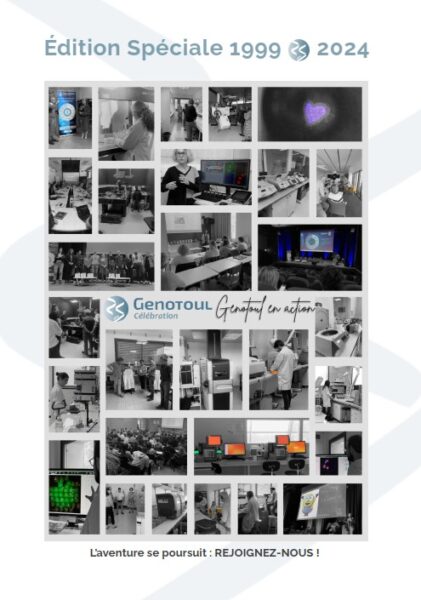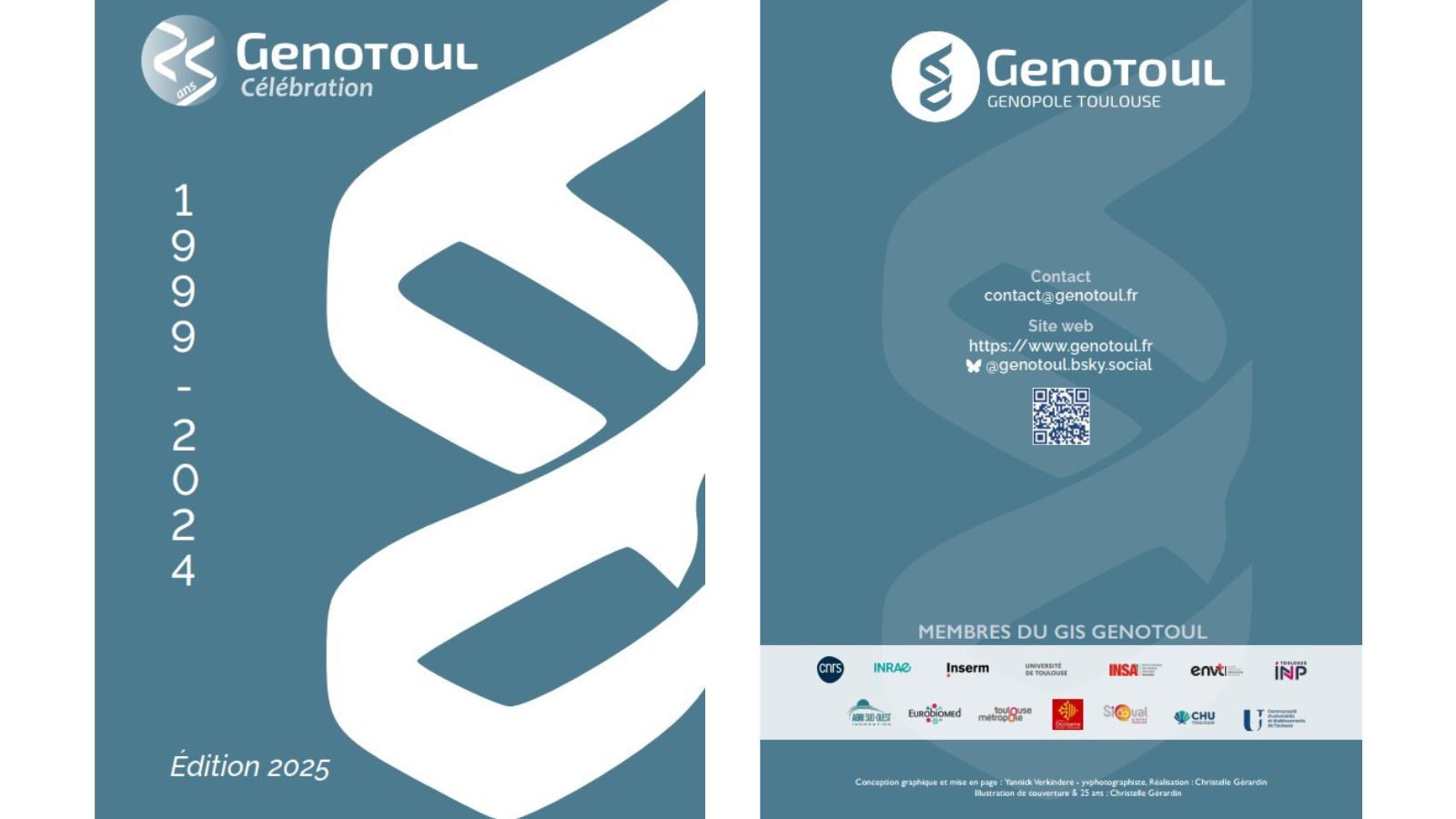Genotoul 2025 booklet: special edition!
 In 1999, biology underwent a technological revolution. The development of increasingly fast genome sequencing techniques was combined with ever more powerful computing and storage capacities. Since the discovery of the structure of DNA and the genetic code in the 1950s, the promises of deciphering genomes have been considerable in terms of health, agronomy and biotechnology. The human genome is just about to be published (2001), at the cost of a considerable scientific and industrial effort, the scale of which has been compared to that of the Apollo programme that sent men to the Moon.
In 1999, biology underwent a technological revolution. The development of increasingly fast genome sequencing techniques was combined with ever more powerful computing and storage capacities. Since the discovery of the structure of DNA and the genetic code in the 1950s, the promises of deciphering genomes have been considerable in terms of health, agronomy and biotechnology. The human genome is just about to be published (2001), at the cost of a considerable scientific and industrial effort, the scale of which has been compared to that of the Apollo programme that sent men to the Moon.
It was against this backdrop that Genotoul, the Génopole Toulouse Midi-Pyrénées, was born, under the impetus of visionary researchers led by Claude Chevalet (see interview here), Director of Research at INRA. The Génopoles programme launched by the French Ministry of Research was designed to accelerate the development of biology based on knowledge of genomes, by acquiring the sequencing and computing resources needed to decipher new genomes and develop high-throughput identification of cellular proteins (proteome), as well as considering the ethical issues raised by this new horizon and developing best practices. This is the birth of ‘omics’, analysis techniques capable of generating a global map of cell constituents and studying their variations, generating considerable amounts of data to analyse and store.
25 years is a long time and a short time in research…
25 years later, Genotoul has been enriched by the many platforms set up over the years by Toulouse’s academic community to pool complex and costly technologies. The progress made with these technologies has been nothing short of spectacular, as this booklet shows! Thanks to the tenfold increase in sequencing efficiency, ‘pan-genomic’ analyses can now be used to study the differences between genomes within the same species and to retrace its evolutionary history. You will also see how ‘omics’ techniques, sometimes combined with imaging, have been used to understand the mechanisms of allergy and body thermoregulation, or to identify biomarkers of kidney disease. From the biodegradability of plastics and the adaptation of new crop plants to climate change to the ethical issues surrounding research in space, this work addresses a number of societal challenges for the future. Among these, we must not forget the need to join forces more effectively to promote research and innovation in Occitanie Toulouse in a more sustainable world.
Pierre-Emmanuel Gleizes,
Director of Gis Genotoul




